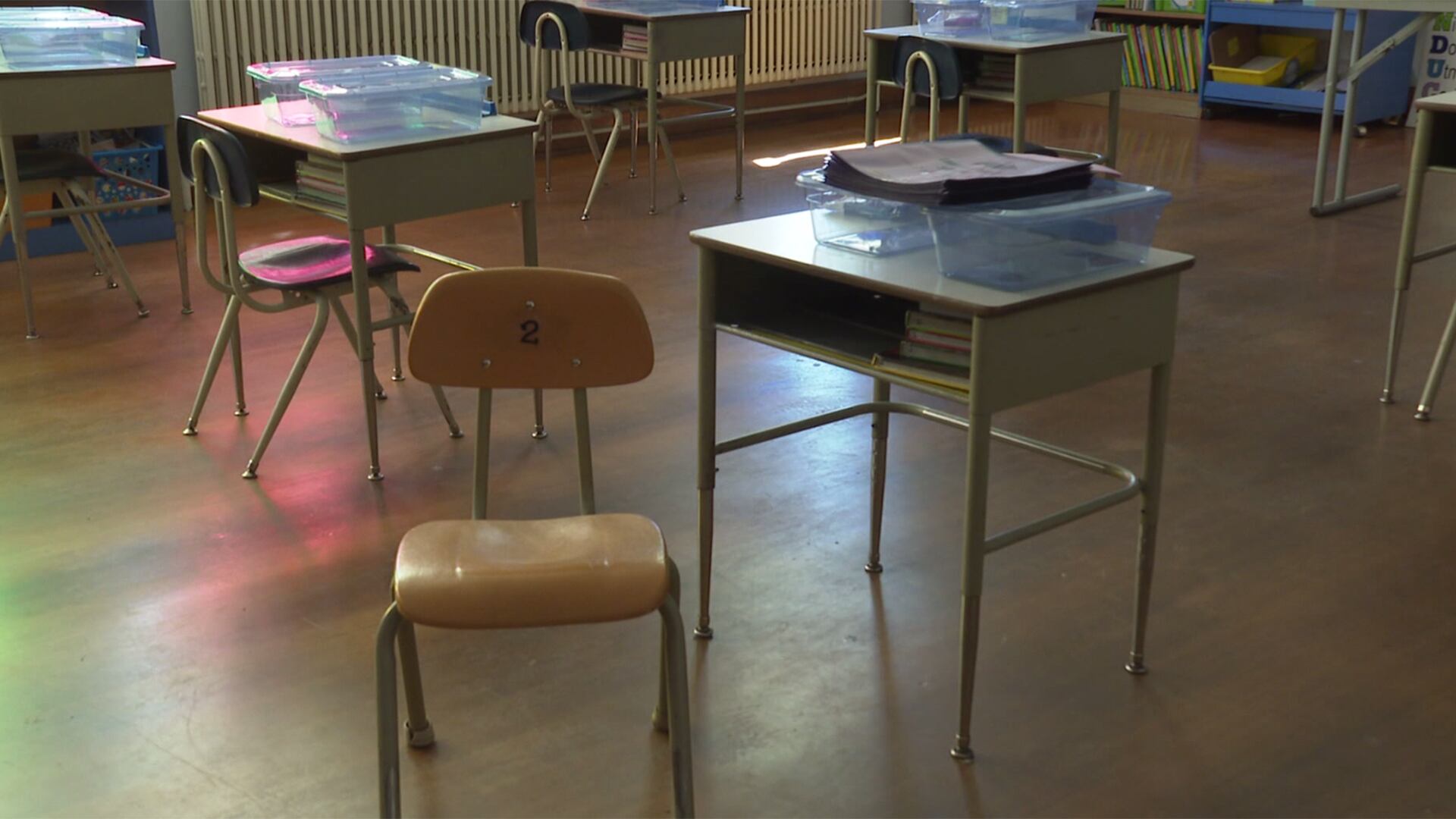Ga. superintendent says Black studies course can be taught after all
ATLANTA - Georgia’s Superintendent of Schools Richard Woods now says school districts may teach a new Advanced Placement course in African American Studies.
It’s a reversal after Georgia’s attorney general said the state’s law against teaching divisive racial concepts specifically exempts such college-level courses.
Woods said last week he’d refused state funding for the course because part of the curriculum falls under a Georgia law dealing with “divisive concepts.”
Court blocks Title IX gender-identity changes at Ga., S.C. schools
A federal appeals court temporarily blocked a Title IX from taking effect Thursday in South Carolina and Georgia.

Woods said Wednesday that a letter from Attorney General Chris Carr to a Republican state lawmaker “completed the clarification process” for him. Woods had cited the law in refusing to recommend the course be added to the state’s course catalog.
Woods, an elected Republican, said the state will now consider all AP and similar college-level courses to be automatically adopted. This means that after weeks of controversy, Woods won’t have to recommend the African American studies course be officially adopted, and of the state Board of Education won’t have to vote on the question.
“In compliance with this opinion, the AP African American Studies course will be added to the state-funded course catalog effective immediately,” Woods said, although he said there would be a disclaimer saying the state hadn’t reviewed the material.
All kids to get free meals at Richmond County schools this year
Every student in the Richmond County School System will receive breakfast and lunch at no charge during the 2024-2025 school year.

Attorney General Chris Carr, a Republican, confirmed Friday in a letter to state Rep. Will Wade that Advanced Placement, International Baccalaureate and dual-enrollment courses are explicitly exempted from the law, which Wade and other critics of Woods’ decision had pointed out. Wade, a Dawsonville Republican, wrote the 2022 measure.
“I’m excited that students who want to seek challenging and rigorous courses will have the ability to do so,” Wade said Wednesday.
Democratic state senators had penned a letter to Woods over the Advanced Placement African American Studies course.
The letter said Woods is treating the course on a “separate but equal basis” and demands Woods meet with the senators “to explain why you believe AP African American Studies merits different treatment from other AP courses.”
Woods’ evolving positions on the question led some districts to drop their plans to teach it without formal state approval. A lack of state approval could influence state funding and the credit students get when applying for college scholarships.
Woods also faced pointed questions from Republican Gov. Brian Kemp, but the most withering fire came from Democrats and others who called it a racist attempt to keep public schools from teaching the full history of African Americans.
“Big picture, I am glad we have finally gotten to this point, even if the journey was long, convoluted and consequential,” said state Rep. Jasmine Clark, a Lilburn Democrat. But she said Woods had still done damage. “The disparate treatment of a course of study about Black history and the message it sent to Black students and families is still disheartening.”
Richmond County students show improvements in test scores
The Richmond County School System made several grade-level improvements and six schools made notable gains in certain subject areas on Georgia Milestones tests.

The Advanced Placement course drew national scrutiny in 2023 when Florida’s Republican Gov. Ron DeSantis said he would ban the course. South Carolina followed this June, refusing state approval while saying that individual districts could still offer it.
The College Board is a nonprofit testing entity that offers Advanced Placement courses across the academic spectrum. Students who score well on an exam can usually earn college credit. The board has said the course is based on academic scholarship and doesn’t seek to indoctrinate students.
Carr’s letter notes that the law requires teachers to instruct “in a professionally and academically appropriate manner and without espousing personal political beliefs.” But other than that, he noted the law’s text specifically exempts AP courses.
“Other than those limitations, the statutory language as enacted excludes advanced placement, international baccalaureate and dual enrollment coursework by its express ,” Carr wrote.
Woods had been saying that districts could teach the AP material and get state money by listing it as an introductory African American studies course approved by the state in 2020. Woods took that position after earlier saying districts would have to teach the course using only local tax money. But he also declared that he believed the course was illegal and that districts could expose themselves to legal challenges by using the introductory course to teach the AP material.
Georgia’s 2022 ban on teaching divisive racial concepts in schools, based on a now-repealed executive order from former President Donald Trump, prohibits claims that the U.S. is “fundamentally or systematically racist.” It mandates that no student “should feel discomfort, guilt, anguish, or any other form of psychological distress because of his or her race.” So far, 18 states have ed such bans.
Opponents of the divisive concepts law said the episode proves how harmful it is. Andrea Young, the executive director of the American Civil Liberties Union of Georgia, said other public school students who don’t take AP courses “should also have access to robust, accurate curricula without politically-driven interference.”
Woods, who is white, said he was particularly concerned about how the course presents the concept of intersectionality. That’s a framework for understanding the effects of overlapping systems of discrimination or disadvantage. For example, Black women may face compounding disadvantages because of their race and gender. Intersectionality is one of 74 required topics in the course.
The Atlanta, DeKalb County and Cobb County school districts have all said they will offer the course in some high schools with or without Woods’ approval. Gwinnett County, the state’s largest district, had said it wouldn’t offer it. After Woods’ ruling Wednesday, Gwinnett County said its six high schools that had planned to teach the course would try to readjust schedules to allow the course to go ahead. School started Monday in Gwinnett County.
Copyright 2024 WRDW/WAGT. All rights reserved.













